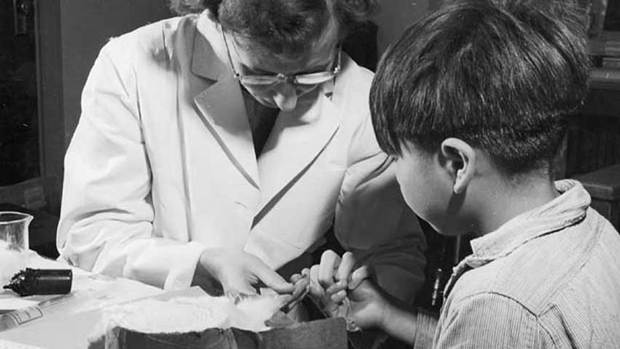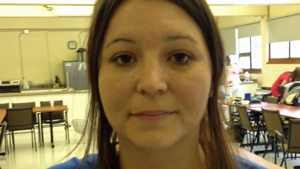Aboriginal Nutritional Experiments Had Ottawa's Approval
CBC News
Nutritional experiments were carried out on malnourished aboriginal people in the 1940s and '50s with the federal government's knowledge, according to documents obtained by CBC News. Minutes from a House of Commons committee show it approved a request from researchers to continue their experiments on aboriginal people in Norway House in northern Manitoba in 1944. The experiments started when an Indian Affairs doctor, along with two others from New York and the University of Toronto, visited the reserve and linked malnutrition to a tuberculosis epidemic and cases of blindness. Instead of improving the food available to all 300 Cree in Norway House, the doctors decided to give nutritional supplements to just 125. Two years later, researchers noted an improvement in the health of the group given the vitamins. Recent research by Canadian food historian Ian Mosby revealed that at least 1,300 aboriginal people — most of them children — were used as test subjects in the 1940s and '50s by researchers probing the effectiveness of vitamin supplements. Read more about food historian Ian Mosby's findings Aboriginal Affairs Minister Bernard Valcourt confirmed to CBC News Tuesday that nutritional experiments happened in residential schools, calling them “abhorrent examples of the dark pages of the residential schools legacy.” His office refused to respond to questions about these newly revealed details of purposeful deprivation that took place on reserves. According to Mosby, the experiments began in Norway House and subsequently expanded to residential schools in Port Alberni, B.C., Kenora, Ont., Shubenacadie, N.S., and Lethbridge, Alta. Subjects were kept on starvation-level diets, and given or denied vitamins, minerals and certain foods. Some dental services were also withheld because researchers thought healthier teeth and gums might skew results.
Candace Davies, who oversees the community kitchen program at the Ontario Native Women's Association in Thunder Bay, said food is a big part of what binds First Nations people together, and that makes the revelation of the experiments more disturbing. "It's just devastating what's been done," she said. "There needs to be healing, there needs to be more programs that are funded to help aboriginals gain themselves again." Jody Kechego, a policy adviser with the Anishinabek Nations in Ontario, said details of the experiments are one more piece of evidence of Canada's treatment of First Nations, but the aboriginal community is not counting on the government to make amends any time soon. "When it comes to First Nations, it appears that Canada is not prepared to act in a just manner," he said.
|
.
Any original material on these pages is copyright © BishopAccountability.org 2004. Reproduce freely with attribution.

